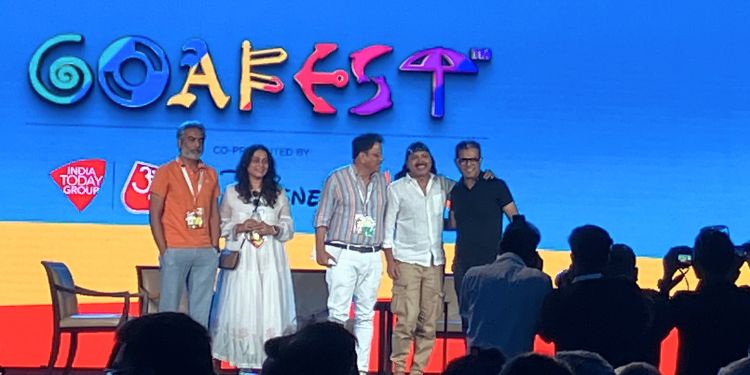The opening session of the 16th edition of the three-day Goafest which got underway on 24th May on the festival theme of ‘Future of Creativity’ put the focus firmly on future-ready talent and the role of technology.
Moderated by Rohit Ohri Chairman & CEO, FCB Ulka, the panellists included Anusha Shetty, Chairperson & CEO, Grey Group India; Josy Paul, Chairman & Group CCO, BBDO India; T Gangadhar, Co-founder and Group CEO, Quotient Ventures; and Dheeraj Sinha, CEO & Chairman, Leo Burnett & BBH.
“It is really hard to find this person,” said Shetty, highlighting the need for professionals who can think of the brand and the big idea, while being able to execute with agility on digital.
“There are very few people who are good at both. With every change, finding talent who can embrace all that change is becoming more and more complex. I don’t think that human exists. Maybe we need to operate (in this phase) in a collaborative manner,” she added.
Paul said that the need was for people who were a three-in-one: Jesus Christ (for the vision and mission), Da Vinci (for the artistic bent) and a prison warden (who knows the lay of the land and the rules).
“I am going to ask AI to create this person,” said Paul, emphasising essentials for the future talent such as an elastic mind and fluidity.
“The mix of talent in agencies is changing but it’s not changing fast enough,” observed Gangadhar. “The brand experience one creates is itself changing. In the future, I think talent is going to come from different places.”
“There is no future of the business without the future of talent. Five or six years ago, we saw that the entry level salaries we were paying was similar to what a driver on Ola or Uber would be making (I have a lot of respect for them). That needs to change,” noted Sinha.
He added that his agencies had stopped testing for craft but focused now on the ability to arrive at solutions, and questioned the credit system in agencies that did not give juniors their due.
“If we cannot build a business where the young can thrive, we’re not building the future of the industry,” he underlined.
Impact of technology on creativity
Referring to the ‘dystopian narrative’ of man vs machine in the context of technology snatching jobs from advertising folks, Gangadhar noted that while the machines can score the singles and twos, the human creativity was needed to hit the switch hit sixer. He touched upon the need for human intuition in interrogation in contexts like deep fakes.
“People realise now that if you don’t learn and change you will be left behind,” noted Shetty, stating that it was not the case when Autumn Worldwide (now part of Grey) made the shift from being a mainline agency to digital. “At that time, very few people were ready to change, learn, integrate and grow,” she added.
“There is so much noise about AI. What makes technology unique for the individual is not the AI, it’s the EI (emotional intelligence). Ai is the ‘what’. EI is the ‘how’. EI is what will make brands stand out,” said Paul.
Emphasising the need to build confidence back in the power of creativity, and use the tools at one’s disposal today, Sinha said, “Sometimes, we are as an industry very sceptical about ourselves. Today, there is a huge palette for us to play with, be it technology or data. Creativity is the power to solve problems for clients and humankind.”

















